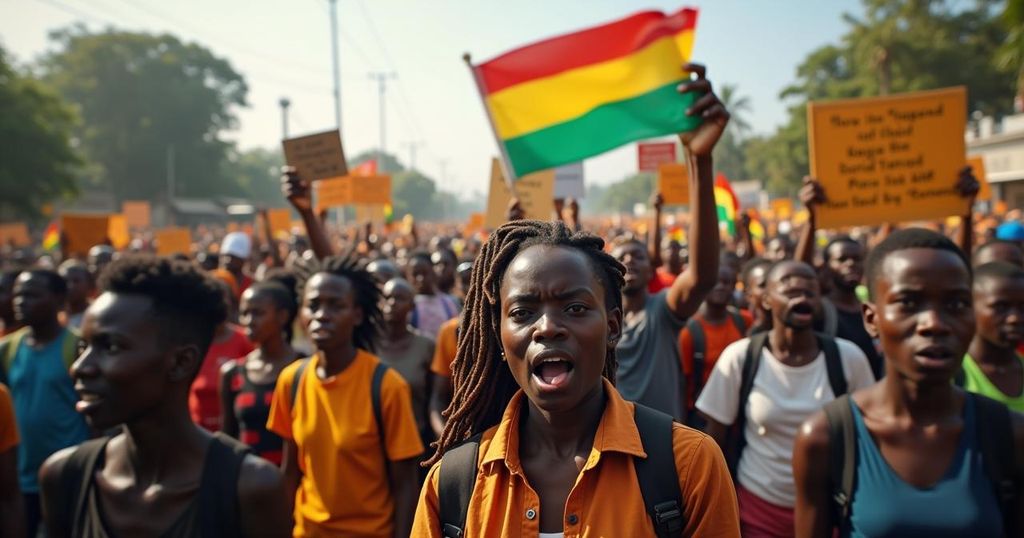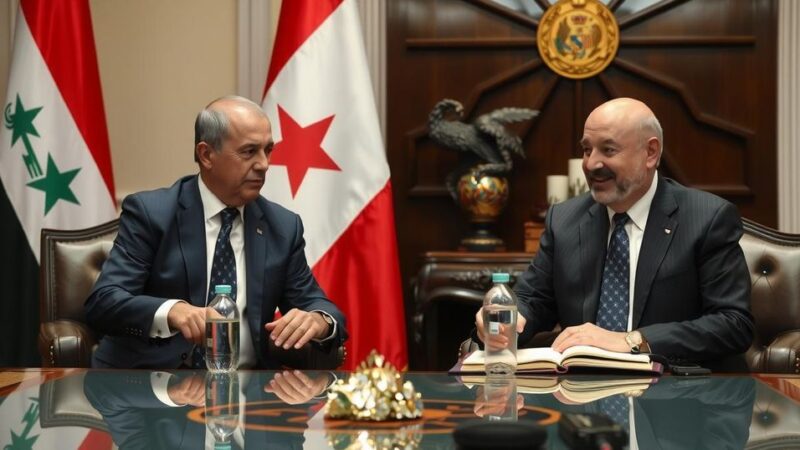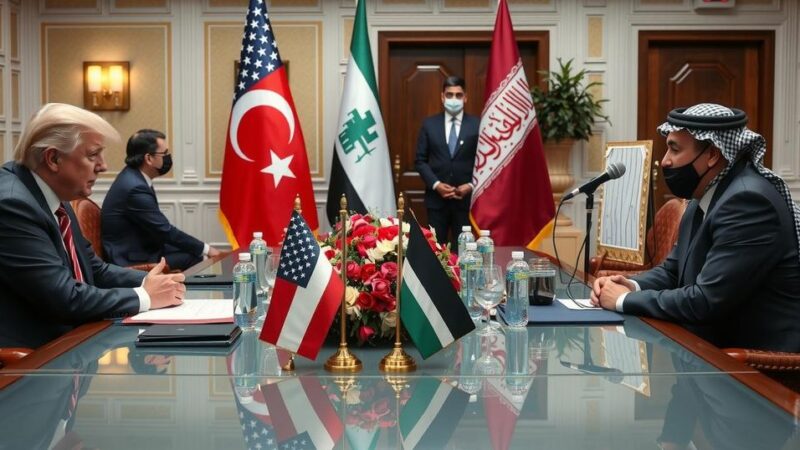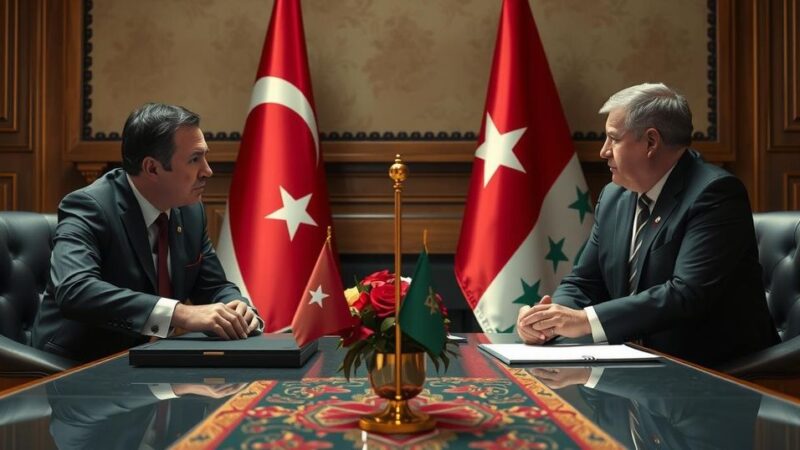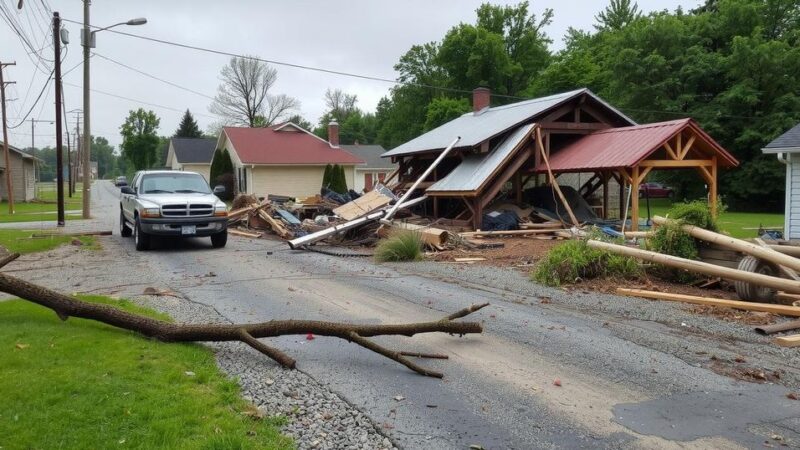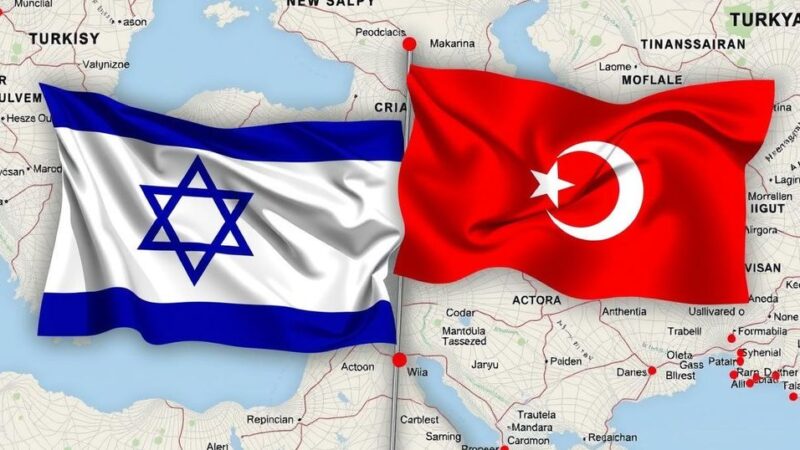In Butembo, eastern DRC, hundreds of demonstrators protested against negotiations with M23 rebels, accusing Rwanda of supporting them. They expressed solidarity with the Congolese armed forces and demanded an end to violence from both M23 and ADF. Despite ongoing military operations with Uganda, protesters insist on rejecting any negotiations that do not prioritize their safety.
On Tuesday, demonstrators in Butembo, eastern Democratic Republic of the Congo (DRC), gathered to voice their discontent regarding the ongoing negotiations with the M23 rebels, whom they accuse Rwanda of supporting. Hundreds took to the streets to express their solidarity with the Congolese armed forces (FARDC) and to advocate against any potential dialogue with the rebel group. Protester Frank Mukendi stated, “We stand behind them, we support them, and we call on them to launch offensives. From today, we intend to work with them to fight the enemy. Our regions are occupied, and that is why we are asking them.” As peace negotiations are being conducted in Luanda between representatives of the DRC and Rwanda, tensions have intensified, with protesters criticizing what they perceive as distraction tactics by Rwanda. Muhindo Shafi, a civil society member, remarked, “Rwanda claims every day that there are FDLR members in the DRC and that we need to track them down. That’s Rwanda’s daily argument, but I see it as a total distraction.” In the meantime, the demonstrators voiced their condemnation of the ongoing violence perpetrated by the Allied Democratic Forces (ADF) in North Kivu, which has resulted in significant loss of life since 2014. Protester Rose Kahavu expressed her sentiments, stating, “We are being massacred in Beni, in the Lubero territory. We say enough is enough.” The protesters called for increased support for the Congolese military to combat both the M23 and ADF rebel groups effectively. In response to continuing violence, collaborative military operations involving both Congolese and Ugandan armed forces are in progress. On October 13, President Félix Tshisekedi of the DRC emphasized the need for enhanced military cooperation with Uganda to address insecurity in the region, signaling a commitment to eradicate threats posed by militant groups in eastern DRC and restore peace.
The Democratic Republic of the Congo (DRC) has been embroiled in conflict for decades, with various rebel groups operating within its borders. The M23 rebel group has garnered significant attention due to allegations of foreign support, particularly from Rwanda, which the Congolese government and citizens claim exacerbates the violence in the region. The ADF, a militant group with a history of brutal attacks against civilians, has further contributed to the instability in the area. As the DRC government engages in negotiations with Rwanda in the hopes of reaching a peaceful resolution, many citizens are apprehensive about the potential outcomes, fearing that compromises with rebel groups may undermine their security and territorial integrity. Public protests have emerged as a means for citizens to express their disappointment and demand a more robust military response from their government.
The protests in Butembo reflect the deep-seated frustrations of the Congolese populace regarding foreign interference and the ongoing insurgency by rebel groups such as the M23 and ADF. Citizens are calling for stronger military measures against these threats and rejecting any negotiations that may lead to concessions compromising national security. The recent military cooperation initiatives between the DRC and Uganda illustrate the government’s commitment to restoring stability in the region, but the enduring violence continues to challenge these efforts.
Original Source: www.africanews.com

